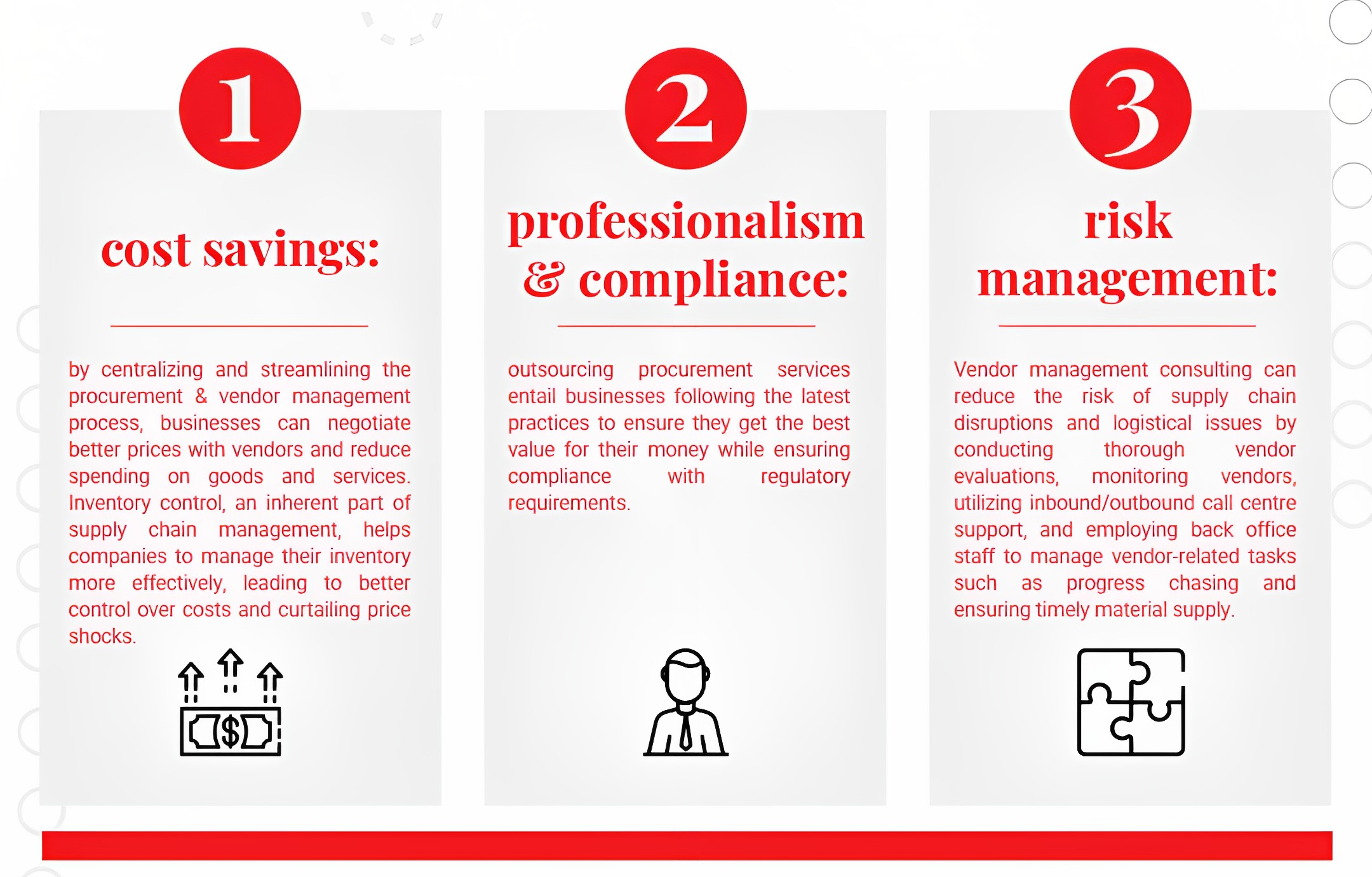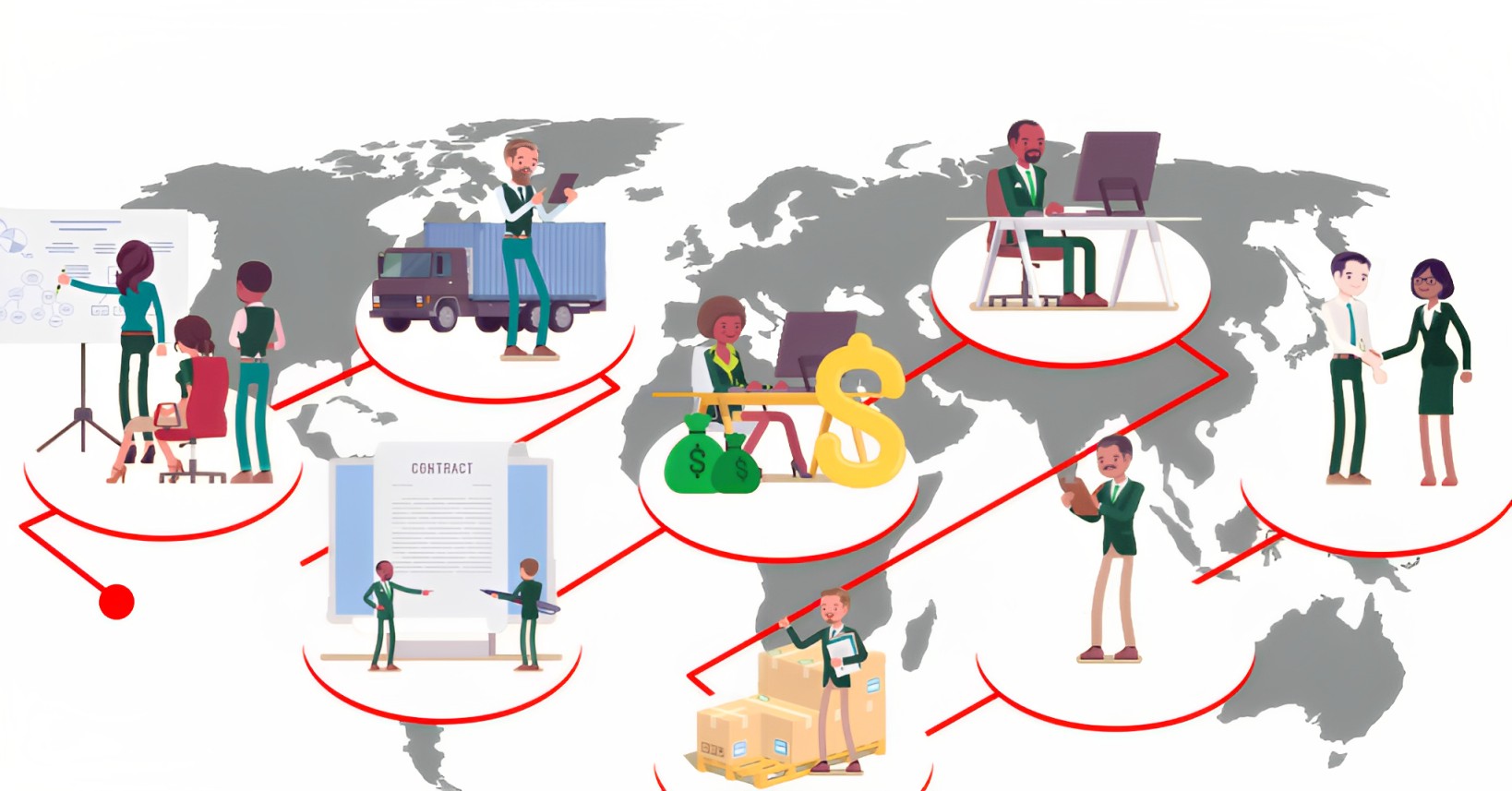what is procurement and supply chain management service?
Early forms of procurement & supply chain management were often simple and informal, with goods and services being procured through personal relationships and informal agreements. As businesses grew in size and complexity, formal procurement processes and systems were developed to manage the acquisition of goods and services more efficiently. Digitization has dramatically impacted procurement, automating many procurement processes and enabling more efficient communication and collaboration between businesses and suppliers. Of late, supply chain management services have become increasingly strategic, identifying and managing risks, optimizing supply chain performance, and leveraging technology to drive innovation and cost reduction. Additionally, procurement management is increasingly used to drive sustainability and social responsibility in the supply chain. The scope of Procurement & supply chain management goes well beyond merely purchases & includes planning, determining standards of quality, identifying suitable suppliers, price negotiation, financing purchases, acquiring the required goods and services & inventory control. The primary aim of procurement management is to ensure that the best quality goods and services are obtained at the most favorable terms while ensuring compliance with regulations and business policies. A professional approach to procurement management can improve an organization's bottom line by reducing costs and increasing efficiency.
what is the necessity of procurement management service for businesses & how is it carried out?
Vendor management consulting & procurement strategy is often considered a best practice for companies and government agencies. It provides a competitive edge and a sense of inclusivity for businesses. These services may be the catalyst for small & medium-sized companies looking to leapfrog into the big league. This includes economic benefits, risk management, compliance, excellent quality, and sustainability. In most cases, businesses are expected to have specific procurement procedures, especially those companies that work with government agencies. These businesses are usually subject to specific regulations and laws that require them to follow particular procurement procedures. Due to the extensive nature of work involved in procurement management, SME’s are better of by outsourcing these, as they can save time and resources, reduce costs, and improve the quality and reliability of the products and services they obtain.
Typical steps involved in procurement services :
● Identifying and analyzing the need for goods or services
● developing a procurement plan that specifies detailed requirements and sets a budget
● Sourcing potential eligible vendors and conducting thorough evaluations
● negotiating and finalizing contracts with vendors
● Managing and monitoring vendor performance throughout the agreement
here is how thinksynq’s procurement strategies can power your business:
as a procurement management service provider, we offer comprehensive & end to end solutions that can help you streamline your procurement process and improve your bottom line. Here's how thinksynq can fuel your expansion & catapult your growth
● expertise: we have a team of seasoned professionals with years of expertise in procurement management, a deep understanding of multiple industries, and an ability to anticipate and manage risks associated with procurement activities. Domain expertise is crucial in navigating the legal and regulatory landscape, which can help to minimize risks and ensure compliance. This includes refining vendor management policies, instilling ethics in vendor management, reviewing standard commercial & legal clauses, and purchasing order management & contract templates for various purchases.
● technology platform: thinkmoney solution, a feature-rich product for supply chain management including a wide range of features from budgetary control-based indent approval to negotiation with vendor leading to financial commitment and provisioning, integrated with FAS thinkmoney fully completes the process.
● personalized strategy: we understand that every business has a set of unique requirements apart from the usual sector practices. We provide specialized solutions made to fit your unique needs.
● economic benefits: by working with our procurement strategy, you can reduce procurement costs and improve your bottom line. Implementing strategic sourcing, supplier management techniques & leveraging economies of scale by consolidating purchases and negotiating volume discounts are a few methods we deploy to cut and improve supplier performance.
what are the primary goals of vendor management services?
robust vendor management services are essential for businesses. It helps companies streamline the procurement process while ensuring the best vendors are at work. Some key goals of vendor management services are enumerated below:
● vendor assessment and shortlists: works to identify the needs of businesses and evaluates potential vendors for their competencies & suitability.
● contract negotiation: negotiation and drafting of contracts are handled to ensure that businesses get the most favorable terms and conditions.
● effective communication: relationship with vendors, including multi-modal communication, performance monitoring, and dispute resolution, is adequately handled.
what are the benefits of procurement and vendor management Service?

steps involved in procurement outsourcing service

The steps involved in procurement outsourcing services typically include the following:
● needs assessment & planning: identifying the specific procurement needs of the business and forecasting based on projections to plan the supply chain pipeline.
● request for proposal (RFP): the RFP is a document that outlines the procurement needs of the business, including the scope of work & the pre-requisite qualifications and experience desired. This step helps ensure that vendors understand the needs of the company and can respond with proposals that are customized to meet those needs.
● contract negotiations: negotiating the terms and conditions of the outsourcing agreement with the shortlisted vendors includes the scope of work, pricing, payment terms, SLAs, Quality guarantees, termination clauses & confidentiality measures.
● monitoring and improvement:establishing parameters to measure the vendor's performance, monitoring the work to ensure that it meets the needs of the business, and regularly reviewing the outsourcing process to ensure that it not only delivers efficiently but improves with each cycle.
FAQ’s
» how can automation yield better results in procurement & supply chain management?
automation can significantly benefit procurement & supply chain management in critical areas such as efficiency, costs, and visibility. Automated systems can help to track inventory levels in real-time, enabling businesses to get notified swiftly when stock is running low and reorder as necessary. Mechanical systems can provide real-time visibility into orders' status, helping companies to identify probable delays so that remedial measures are resorted to. Transportation routes and schedules can be optimized by automation tools reducing logistics costs. Compiling accurate demand forecasts and production plans that align with those forecasts is another way automation helps businesses. In addition, Automated systems can help businesses to collect, store, and analyze large amounts of data from across the supply chain, enabling them to make data-driven decisions to improve performance. However, it's important to note that a robust implementation plan and initial capital investment are mandatory.
» which are some of the common tasks outsourced to a procurement & supply chain management service company?
procurement & supply chain management service companies usually specialize in providing comprehensive services to businesses. These services can include a vast array of activities, such as
● sourcing and purchasing of goods and services
● supply chain management and logistics
● supplier selection & vendor management
● PO processing and invoice management
● contract negotiation and administration
● budget analysis and cost optimization strategies
● inventory control and forecasting
● QA-QC and compliance management
● risk management and contingency planning.



